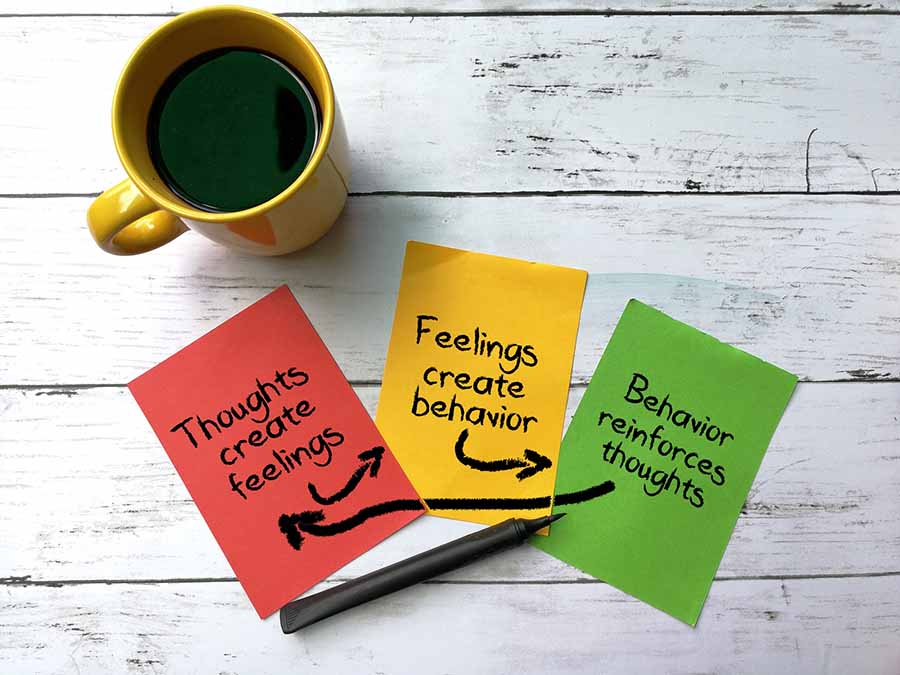 There is one psychological remedy that’s been shown to be successful in treating a wide range of conditions—everything from phobias to depression.
There is one psychological remedy that’s been shown to be successful in treating a wide range of conditions—everything from phobias to depression.
Research has suggested that it might be effective in treating insomnia too, so to test whether it might work in a primary care setting, a research team investigated and published its findings in the British Journal of General Practice.
Primary care means the day-to-day healthcare you receive from a healthcare provider. It’s what your GP, nurses, and pharmacists provide, rather than what specialists offer.
It’s cheaper to offer therapy in a primary care setting instead of a specialist clinic, so the authors of the new study had an incentive to discover whether CBT could work there.
The researchers looked back over studies published between 1997 and 2018 and found 13 that qualified.
These showed that cognitive-behavioral therapy was extremely effective, with insomniacs reporting a moderate to large reduction in symptoms. Better yet, these improvements lasted for at least a year.
To achieve this effect, the patients had to receive four to six therapy sessions.
In the studies they looked at, the therapy was usually provided by nurses, counselors, social workers, or psychologists who worked in the primary care setting. GPs provided the therapy in only three cases.
This is great news, because it shows that doctors don’t need to start dishing out habit-forming sleeping tablets at the first sign of insomnia.
So, what does cognitive-behavioral therapy for insomnia look like?
The way it works is that it helps you to identify the thoughts and behaviors that ruin your sleep, then it helps you to challenge, alter and replace them with alternatives that promote quality sleep.
For it to work, you need to prepare by spending a few weeks keeping a sleep diary in which you record everything in your life that’s sleep-related. This helps you gather all of the unhelpful thoughts and behaviors in one place so you can analyze them.
Here are some common strategies:
1. Sleep hygiene and environment education includes general advice like sleeping in a cool room, coffee and alcohol avoidance, removal of screens, and so on.
2. Stimulus control instructions involve the identification and alteration of habits that interfere with sleep. For example, avoid the bedroom while you are awake, set consistent sleeping and waking times, hide the glowing numbers of your alarm clock so you don’t stare at it etc.
3. Sleep restriction. For example, avoid afternoon naps, plan for a short night and then increase this over time, etc.
4. Relaxation training. For example, meditation, muscle relaxation, etc.
If this study is right, then CBT could be one answer to your problems with insomnia.

 Overcoming IBD
Overcoming IBD Multiple Sclerosis
Multiple Sclerosis Banishing Bronchitis
Banishing Bronchitis Gum Disease Gone
Gum Disease Gone Overcoming Onychomycosis
Overcoming Onychomycosis Neuropathy No More
Neuropathy No More The Prostate Protocol
The Prostate Protocol Brain Booster
Brain Booster
 Ironbound
Ironbound
 Solution for Shingles
Solution for Shingles
 The Bone Density Solution
The Bone Density Solution
 The Ultimate Healing Protocol
The Ultimate Healing Protocol
 The Parkinson's Protocol
The Parkinson's Protocol
 The Chronic Kidney Disease Solution
The Chronic Kidney Disease Solution
 Overthrowing Anxiety
Overthrowing Anxiety The Fatty Liver Solution
The Fatty Liver Solution The Hypothyroidism Solution
The Hypothyroidism Solution
 The End of Gout
The End of Gout The Blood Pressure Program
The Blood Pressure Program
 The Oxigized Cholesterol Strategy
The Oxigized Cholesterol Strategy
 Stop Snoring And Sleep Apnea Program
Stop Snoring And Sleep Apnea Program
 The Arthritis Strategy
The Arthritis Strategy The Vertigo & Dizziness Program
The Vertigo & Dizziness Program The 3-Step Diabetes Strategy
The 3-Step Diabetes Strategy Hemorrhoids Healing Protocol
Hemorrhoids Healing Protocol The Erectile Dysfunction Master
The Erectile Dysfunction Master Weight Loss Breeze
Weight Loss Breeze The IBS Program
The IBS Program The Insomnia Program
The Insomnia Program The Migraine and Headache Program
The Migraine and Headache Program The Neck Pain Solution
The Neck Pain Solution The Menopause Solution
The Menopause Solution The Ejaculation Master
The Ejaculation Master The TMJ Solution
The TMJ Solution The Acid Reflux Solution
The Acid Reflux Solution The Fibromyalgia Solution
The Fibromyalgia Solution The Psoriasis Strategy
The Psoriasis Strategy